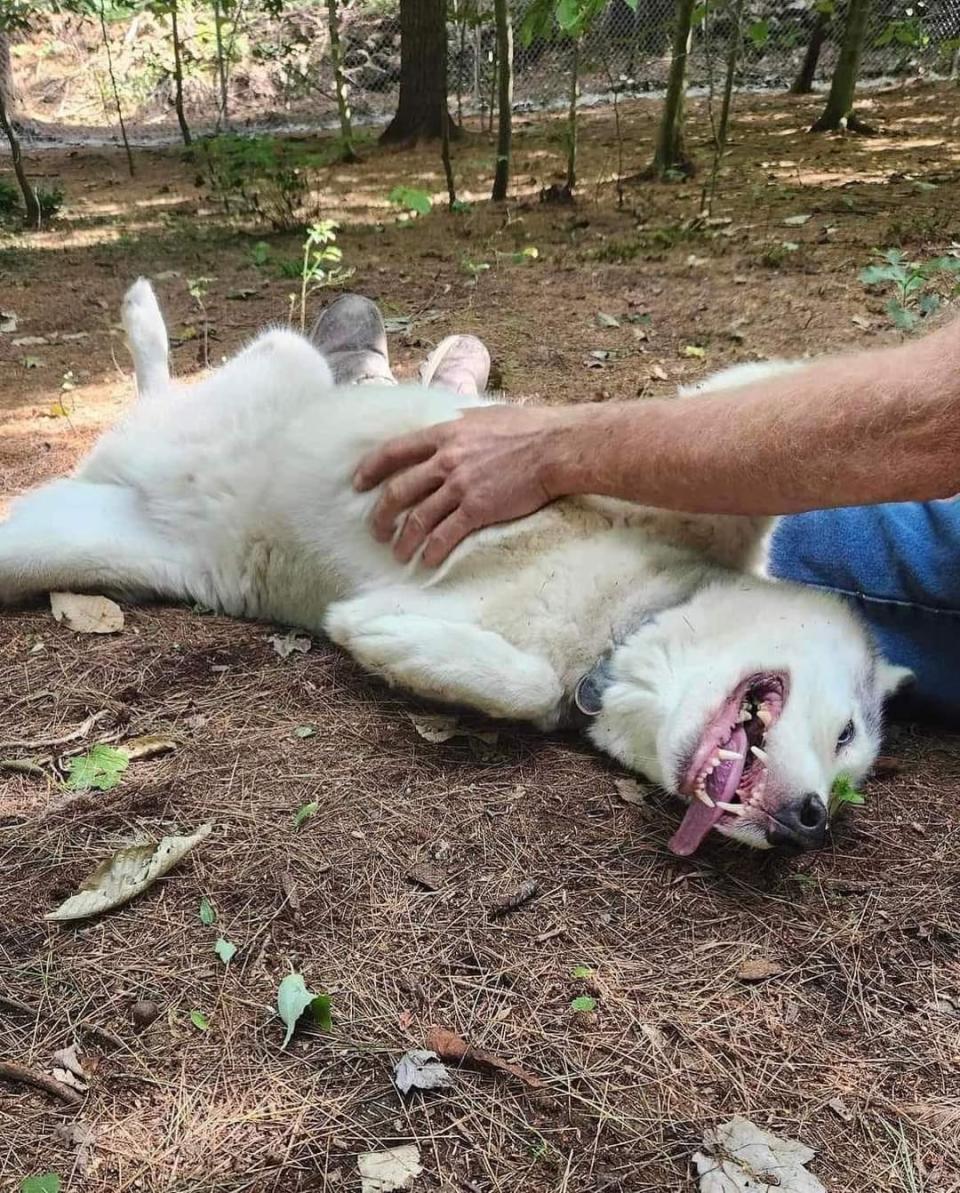'Newest member of the pack': Wolf dog rescued in Tiverton gets new home in Maine sanctuary
A wolf dog that had been in the care of the Rhode Island Society for the Prevention of Cruelty to Animals has finally found a new home in Maine.
Four months after he was rescued from a home in Tiverton, Howl has been moved to the Wolves of Maine Sanctuary, where he will live with seven other rescued wolf dogs.
"Wolves of Maine Sanctuary is thrilled to welcome our newest member of the pack, Howl!" the nonprofit rescue agency said on Facebook. "Thanks to our wonderful supporters, we were able to raise nearly $6,300 to bring Howl home to WOMS! He is doing very well! He enjoys his new (and finally his own) space, exploring the yard, new friends, snuggling, belly rubs, and time in the house to lounge."

Howl, who is 6 years old, was among 34 dogs removed in May from overcrowded and "deplorable" conditions at a home in Tiverton, according to the RISPCA. Noticing Howl's wolf-like appearance and tendencies, the RISPCA decided to have him tested, and the results confirmed their belief; he's 18.4% gray wolf. Because wolf dogs are illegal in Rhode Island, the agency had to look beyond state borders to find Howl a new home.
The Maine sanctuary, founded in 1990 under a different name, says its mission is "to rescue, protect, and care for abused and/or neglected wolves, wolf hybrids, and wolf dogs for the remainder of their natural lives and educate the public about wolf ecology."
More: Once home in Rhode Island, wolf dogs start new lives in faraway states
Kim Printy, executive director of the sanctuary, says wolf dogs are wild animals, but many people who purchase them don't know what they're getting themselves into, and many of the dogs end up living in poor conditions or being abandoned.
"I think most people don't realize how much work they are," she said.
Wolves in the wild can roam 40 to 50 miles in a day, and it's cruel, she said, to confine a wolf dog to a small living space. Still, she said, breeders in places like Florida, Texas and Ohio are producing puppies, attracted by sales prices that can be several thousand dollars.

Maine doesn't allow ownership of wolf dogs, but the sanctuary operates with a permit through the Maine Department of Inland Fisheries and Wildlife. It had to receive additional approval from the state agency to bring in Howl, according to Printy.
The sanctuary also had to raise money from donors to build Howl's living area. The wolf dogs all have their own separate living space and can run around in a large enclosed area, Printy said. The dogs can interact through the fences, but Printy said they will likely wait six months for Howl to settle in before introducing him to any other dogs without a barrier between them.
There's also a barn and a house on the property. In fact, Howl, who arrived last week, escaped the heat of an especially hot day last week, taking a nap near Printy in the air-conditioned house.
Printy said, "He's much easier going and has transitioned much better than we anticipated."
This article originally appeared on The Providence Journal: Wolf dog finds new home in Maine sanctuary after months at RISPCA

